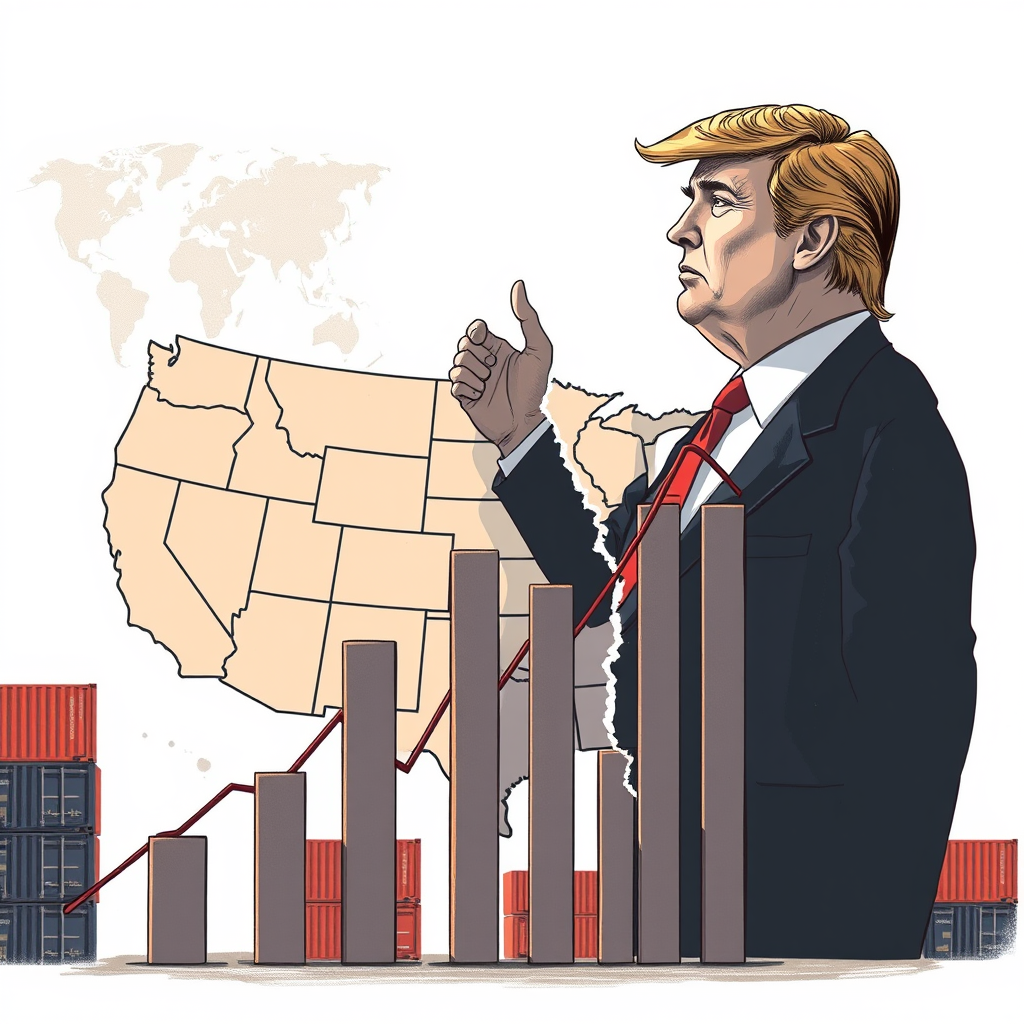JP Morgan: US Recession Looms Amid Tariffs

US Recession Looms as Trump Tariffs Fuel Economic Concerns
A growing consensus among financial institutions points to a potential US recession by year’s end, with escalating tariffs imposed by President Donald Trump cited as a major contributing factor. JP Morgan, in a note to investors released Friday, forecasts a contraction in the nation’s gross domestic product, directly attributing it to the weight of these new trade barriers. Chief US economist Michael Feroli predicts the recession will also drive the unemployment rate up to 5.3 percent.
The forecast follows President Trump’s April 2 announcement of reciprocal tariffs on numerous countries, a move intended to reshape US trade relationships. The administration’s plan, which began implementation on April 5 with a 10 percent tariff on imports from all nations, escalates further on April 9, targeting countries with the largest trade deficits with individualized, and often significantly higher, tariffs. India, for example, faces a 26 percent tariff on all exports.
Federal Reserve Chair Jerome Powell echoed these concerns, warning that the tariffs pose a greater economic threat than previously anticipated. Speaking at a business journalism conference Friday, Powell stated the tariffs will likely exacerbate inflation and slow economic growth, complicating the Fed’s efforts to manage inflation. He emphasized the increasing clarity that the tariff increases will be substantial, and their economic effects correspondingly significant.
While the overall outlook is grim, some firms offer a nuanced perspective. Global brokerage Jefferies suggests the impact on India may be less severe than on other nations. The firm notes that key Indian export sectors – including IT services, pharmaceuticals, and automobiles – are largely unaffected by the new tariffs, describing the 26 percent tariff as “reasonable” in comparison to those imposed on other countries.
However, Jefferies also cautions that a broader US economic slowdown remains a significant risk for Indian exports, particularly within the IT services sector. The firm acknowledges that even a “reasonable” tariff can’t fully insulate India from the negative consequences of a weakening US economy.
This confluence of warnings from both JP Morgan and the Federal Reserve, coupled with Jefferies’ tempered optimism, paints a concerning picture for the US and global economies. The Trump administration’s aggressive trade policy, while aimed at rebalancing trade relationships, appears to be accelerating the risk of a recession, potentially impacting businesses and consumers worldwide. The situation demands careful monitoring and a proactive approach to mitigate the potential fallout.